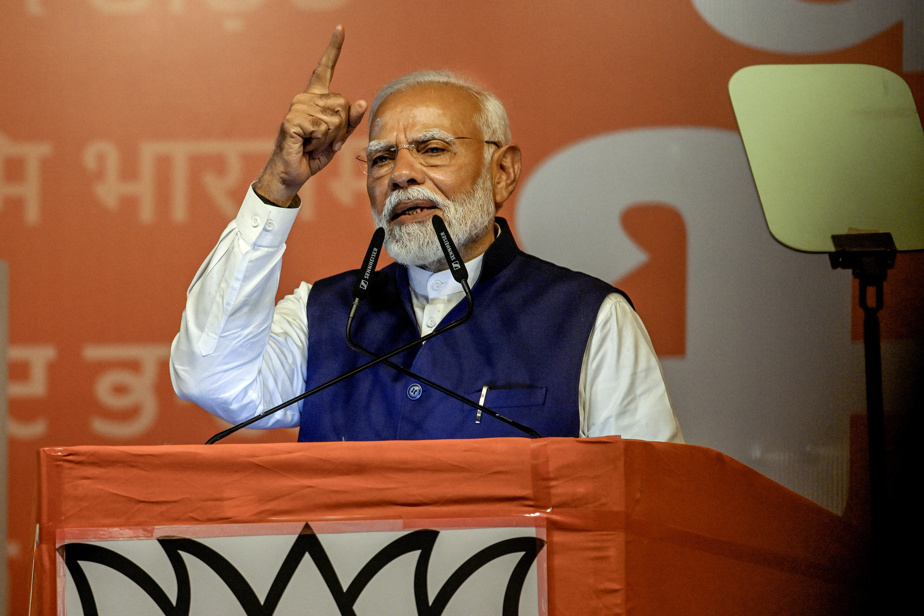(New Delhi) Indian Prime Minister Narendra Modi’s Hindu nationalist party is in talks with its allies to form a coalition government on Wednesday, after failing to win an absolute majority in legislative elections for the first time since coming to power two years ago. ten years.
In the wake of this unexpected setback for Mr. Modi’s Bharatiya Janata Party (BJP), the leaders of the different political parties are trying to consolidate their positions and strengthen their alliances.
Without the tidal wave in his favor announced well before the start of the legislative elections, Mr. Modi risks being given a much more difficult third term than expected.
The BJP no longer has an absolute majority in Parliament, but it should be able to form a government, at the head of an alliance of small parties.
“India shoots Modi,” ran the headline in The Telegraph on Wednesday; online newspaper Mint mocked “The Karma coalition.”
Some 642 million Indians voted in this election which took place in seven phases, spread over a period of six weeks.
The 73-year-old leader celebrated the victory on Tuesday evening, believing that the election result allowed him to continue his program, while his supporters celebrated the event across the country.
“This third term will be one of big decisions. The country will write a new chapter in its development. I guarantee it,” Mr. Modi told a crowd of cheering supporters in the capital, New Delhi.
“We are very happy with the results,” said Archana Sharma, a 36-year-old pro-BJP office worker.
For Govind Singh, optometrist, 38, “a strong opposition is necessary”, but the government should have a parliamentary majority, “this is essential for any country”.
The BJP won 240 seats in Parliament, 32 seats short of an absolute majority and significantly short of the 303 seats it won in 2019.
Against all expectations, the Congress, the main opposition party, gained 99 seats, almost doubling its 2019 score (52 seats).
“The country told Narendra Modi: ‘We don’t want you,’” said the opposition leader, re-elected handily in the southern constituency of Wayanad.
Most analysts and exit polls had predicted the triumph of Narendra Modi, accused by his detractors of exploiting justice with the imprisonment of opposition leaders and of flouting the rights of religious minorities in particular, including more of 200 million Indian Muslims.
The prime minister was re-elected in his Varanasi constituency with a much smaller margin than five years ago.
Now dependent on its coalition allies, the BJP will have to seek consensus to get its texts voted on in Parliament.
“The possibility that they will use their influence, encouraged by proposals from the Congress party and other members of the opposition, will be a source of constant concern for the BJP,” underlines the daily Times of India.
According to Hartosh Singh Bal, political reporter for The Caravan magazine, Mr. Modi must now “work with his alliance partners […] who can walk away at any time.”
The festivities began on Tuesday at Modi’s BJP headquarters well before the final announcement of the results.
The Congress headquarters in New Delhi was also jubilant.
“The BJP has failed to get a large majority on its own,” Congress MP Rajeev Shukla told reporters. “It is a moral defeat for them.”
The opposition has struggled in the face of the powerful, well-funded BJP campaign machine and legal proceedings against several of its leaders.
The Muslim minority has expressed concern for its future and that of India’s secular Constitution which the Hindu nationalist agenda appears to threaten.
Neighboring rival China on Wednesday congratulated the coalition led by Narendra Modi on its victory, saying it was “ready to work” with India.
Earlier, Ukrainian President Volodymyr Zelensky offered his congratulations to Mr. Modi, emphasizing “the weight and importance of India in world affairs.”




